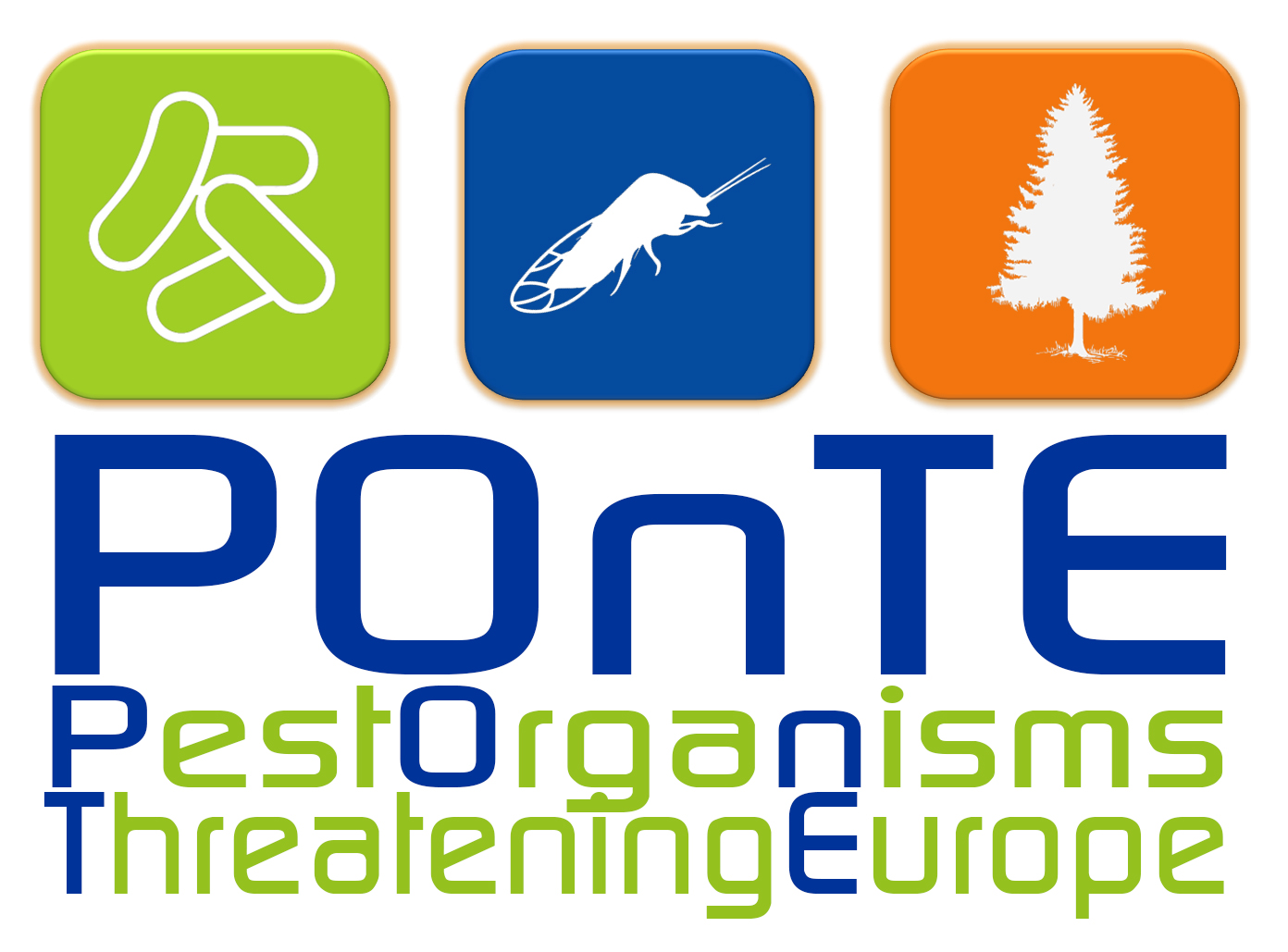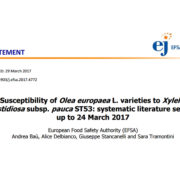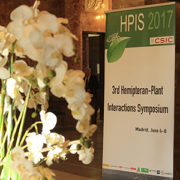EFSA releases a systematic literature search on susceptibility of olive cultivars to Xylella fastidiosa ST53
Following a request from the European Commission, the European Food and Safety Agency (EFSA) has recently released a statement on the susceptibility of olive cultivars to the strain of Xylella fastidiosa (subsp. pauca CoDiRO strain, ST53) consistently found in the Apulian outbreaks, on the basis of twenty-one bibliographical references currently available in the scientific literature.
The study, published in EFSA Journal, provides converging evidence that indicates the presence of tolerance traits shown by the cultivar Leccino. Although no long-term observations have been established yet, the currently available experimental assays and field surveys made in the affected area prove that the cultivar Leccino, when infected by the pathogen, develops milder symptoms compared to those observed in highly susceptible cultivars Cellina di Nardò and Ogliarola salentina.
Preliminary results show that a tolerant or resistant behaviour can also be found in other olive cultivars, where even the size of Xylella fastidiosa populations seems to be lower. Although this lower bacterial population size could possibly reduce the vector acquisition efficiency, the data prove that transmission still occurs. Therefore, the report underlines the importance to combine the growth of tolerant olive cultivars with the implementation of good agricultural practices and integrated pest management for vector control.
New research is being conducted in the EU, mainly within the framework of the H2020-funded projects POnTE and XF-ACTORS. The aim is to study the level of susceptibility of several olive cultivars to Xylella fastidiosa subsp. pauca ST53 infections, and therefore, more relevant results are expected in the coming years.









